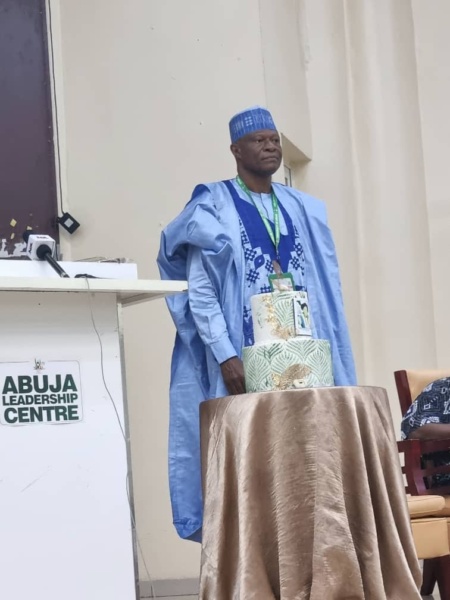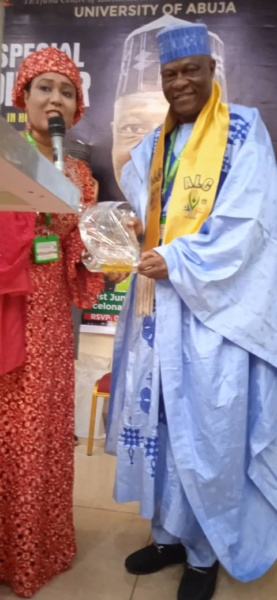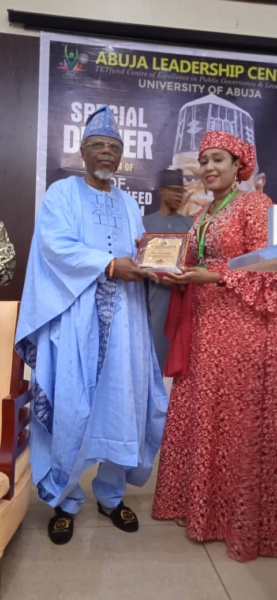(Excerpt of Keynote Address, Dinner in Honor of Professor Na’Allah, outgoing Vice-Chancellor, University of Abuja, June 1, 2024)
By Toyin Falola
The governance of Nigerian universities is critical, influencing not only the quality of education and research but also the institutions’ broader societal influence. As Nigeria evolves in a globalized educational and economic landscape, the significance of competent university governance cannot be emphasized. The historical backdrop of governance in Nigerian universities is critical for understanding the complexities of today’s governance concerns, emphasizing the necessity for a flexible and inclusive governance approach.

Nigerian universities’ governance structure has been strongly influenced by their colonial history, which brought Western educational methods and institutional frameworks. These systems, which were largely intended to serve the colonial rulers’ administrative demands, frequently failed to consider Nigerian society’s cultural, economic, and political peculiarities. This imbalance has had long-term implications for universities’ autonomy and operational efficacy in the postcolonial era. Following independence, Nigeria sought to reinterpret these systems with the goal of nationalizing and localizing university governance. During this time, major efforts were made to reform governance structures to better align them with national development goals. However, the adaptation process has been plagued with complications. The National Universities Commission (NUC), which was established to regulate quality and set standards, has played an important part in this development, helping to standardize educational quality across institutions, although its centralized control has been criticized for restricting innovation and autonomy at the university level.

Today, the governance of Nigerian institutions is expected to strike a difficult balance between autonomy and accountability. Universities require the ability to innovate and adapt to quickly changing global educational demands while remaining accountable to stakeholders. Achieving this balance is challenged by financial limits, insufficient funding, and the widespread influence of political agendas, which frequently result in administrative and academic decisions that prioritize political or personal gain over educational excellence. Financial management and funding are among the most important issues facing Nigerian colleges. With funding predominantly coming from government sources, universities are frequently forced to navigate the uncertainties of fluctuating financial support, which has a direct influence on their ability to maintain facilities, invest in quality teaching and research, and retain qualified faculty. The reliance on government funding links universities’ financial health to the larger political and economic climate, rendering them vulnerable to policy and priority swings that may not coincide with their strategic or academic needs. Political meddling complicates governance even further, with appointments and strategic decisions sometimes influenced by political alignments rather than merit or academic interests. This not only affects university autonomy but also jeopardizes the quality of educational and research achievements. The challenge is to reduce interference while increasing transparency and accountability in governance processes.

To solve these difficulties, colleges must embrace reforms that strengthen governance structures, increase financial autonomy, and promote accountability. The adoption of technology and innovation in administrative processes can help drive these reforms forward. Implementing comprehensive management information systems, for example, can simplify administrative operations, improve budget management, and promote a more transparent and responsible government. Digital platforms may improve information access, stakeholder participation, and decision-making openness, all of which are critical for rebuilding stakeholder confidence and credibility. Engaging with a diverse range of stakeholders is critical to improving governance procedures. Inclusive governance, which considers the opinions of students, professors, alumni, industry leaders, and community people, can result in more informed and successful decisions. This strategy not only makes colleges more relevant and responsive to the needs of their communities, but it also brings them closer to worldwide educational norms and practices. As Nigerian institutions mature, the path to better governance requires a combination of strategic changes, technical breakthroughs, and broad stakeholder participation. This approach not only tackles operational and pedagogical difficulties but also positions universities as catalysts for socioeconomic development and innovation.

To strengthen university governance, it is critical to rethink and strengthen the mechanisms that have traditionally guided these institutions by clearly defining duties and responsibilities within the governing bodies – the University Senate and the Governing Council – ensuring that each body operates efficiently and with integrity. Reforming these systems also entails strengthening the checks and balances system, ensuring that no single body or individual wields undue authority or influence, which can lead to mismanagement and corruption.

University autonomy is also central to these fundamental improvements. Autonomy should be designed to foster creativity and adaptation, enabling universities to create specialized programmes and research initiatives that are in line with global trends and local requirements. This autonomy, however, must be matched with responsibility. Establishing strong accountability mechanisms entails conducting regular audits, transparently disclosing financial information, and implementing performance goals for academic and administrative institutions. These methods not only serve to maintain high standards but also to increase public trust and confidence in university operations.
Technology has a revolutionary role in modernizing university governance. Digital tools and platforms can significantly improve the efficiency and transparency of administrative procedures. For example, implementing enterprise resource planning (ERP) systems can combine finance, human resources, and student services into a single, transparent system. This connection makes it easier to manage resources, create more accurate budgets, and report on time, all of which are necessary for good governance. Furthermore, technology can be used to improve communication and involvement within the academic community. Online platforms can be used to collect feedback, conduct polls, and host forums where students, professors, and staff can express their opinions and participate in governance processes. This active participation contributes to making the governance model more democratic and responsive to the requirements of the university community.

In addition to technology integration, the involvement of a diverse set of stakeholders is critical. Universities must ensure that governance systems are not just inclusive but also reflect the different interests of their communities. This entails including students, teachers, alumni, industry professionals, and community leaders in decision-making processes. Such inclusive governance ensures that the institution remains aligned with its stakeholders’ needs and expectations, allowing it to better respond to societal demands. Collaboration with business and international collaborations are also important for improving governance. These alliances can help institutions get access to new resources, research possibilities, and revenue streams. Universities can then boost their global position by developing links with businesses and international educational institutions.
In the goal of improving university governance in Nigeria, it is critical to shift from broad ideas to concrete proposals that may be adopted to address the variety of difficulties that institutions face. These ideas should centre on developing a robust and adaptable governance system that can respond to the changing requirements of the educational sector and broader societal developments. First, there must be a determined effort to decentralize university decision-making procedures. This can be accomplished by giving individual departments and faculties more autonomy in their administrative and academic activities. Decentralization supports grassroots creativity, making institutions more responsive to the individual requirements of their students and faculty. It also removes bureaucratic bottlenecks, which can inhibit initiative and agility in major educational institutions.

To improve financial management and sustainability, Nigerian institutions should expand their financing sources beyond government grants and tuition fees. This could involve building strong alumni networks that can contribute financially, forming research relationships with the private sector, and investigating entrepreneurial initiatives that can create cash. Introducing full financial transparency and frequent public reporting will promote accountability while also increasing the credibility and attractiveness of universities to potential investors and partners. Adopting comprehensive digital transformation methods is another important recommendation. Beyond administrative efficiency, technology can help to build a more collaborative and participatory governing culture. Blockchain technology might be used to secure voting on university policy, increasing transparency and stakeholder confidence in decision-making processes. Similarly, AI and data analytics may provide detailed insights into institutional performance, student results, and resource allocation, allowing for more informed and strategic decision-making.

It is also critical to institutionalize regular and systematic stakeholder involvement, which will not only be requesting opinions but also actively engaging students, professors, staff, and external stakeholders in governance through advisory committees and regular town hall meetings. Such constant participation ensures that the university’s governance structures remain aligned with the needs and expectations of its community while also responding to input. Prioritizing training and development for university leaders and administrators will guarantee that they have the skills and knowledge needed to handle the challenges of modern university governance. This covers courses on financial management, crisis management, strategic planning, and ethical leadership. A well-trained leader is better able to guide the organization through problems and seize chances for growth and improvement.
Looking ahead, the successful implementation of these proposals will most likely face obstacles such as resistance to change, limited resources, and external political pressure. However, these barriers can be overcome with strong leadership, clear communication of the benefits of reforms, and careful phasing of changes to enable ample time for adaptation. The potential benefit of successfully improving governance in Nigerian universities is significant. Improved governance can result in stronger educational quality, more effective research outputs, and a greater ability to attract international collaboration and funding. Furthermore, institutions that operate honestly and accountable can serve as role models for excellent governance, affecting not only the educational sector but also national growth.

As Nigerian universities strive to navigate their governance landscapes, strategic, structural, and technological reforms are essential for achieving the desired standards of academic excellence and operational efficiency. The potential for Nigerian universities to contribute significantly to national and global development is immense, but realizing this potential depends heavily on how governance challenges are addressed.
